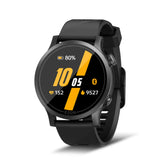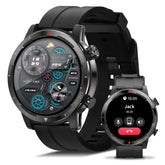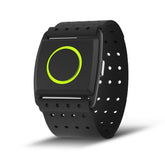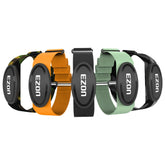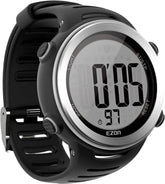Running with Precision: GPS Technology, Recommended Watches, and Marathon Training
In the world of running, precision is everything—whether you’re chasing a personal best or preparing for your first marathon. Modern GPS running watches have revolutionized training by offering real-time data, route tracking, and performance analytics. Combined with purpose-built marathon training watch features, these devices empower runners to train smarter and race stronger. Here’s how to leverage technology and gear to elevate your running journey.
The Evolution of GPS in Running Watches
GPS technology has shifted from a niche tool to a cornerstone of athletic performance. Today’s GPS running watch devices utilize multi-band and multi-constellation tracking (e.g., GPS, GLONASS, Galileo) to deliver accuracy within 1–3 meters, even in urban canyons or dense forests. Advanced models like the Garmin Forerunner 255 and Coros Pace 2 employ dual-frequency GPS to minimize signal drift, ensuring reliable pacing and distance metrics during interval sessions or trail runs.
Key advancements include:
-
Extended battery life: Marathon-ready watches like the Garmin Enduro 2 offer up to 150 hours in GPS mode, ideal for ultramarathons or multi-day events.
-
Real-time navigation: Breadcrumb mapping and course guidance prevent wrong turns during races.
-
Environmental adaptability: Waterproofing (10 ATM+) and MIL-STD-810H ruggedization ensure functionality in rain, snow, or extreme heat.
Top Recommended GPS Running Watches for 2025
1. Garmin Forerunner 265 ($349)
A standout for marathoners, the Forerunner 265 combines AMOLED touchscreens with advanced training metrics like Race Predictor and Training Readiness Scores. Its dual-band GPS ensures precise tracking, while the Up Ahead feature displays key race landmarks (e.g., hydration stations) during events.
2. Coros Pace 3 ($229)
Weighing just 29g, this budget-friendly marathon training watch excels in battery life (24 days standby) and altitude acclimation insights. The EvoLab platform analyzes VO₂ max, lactate threshold, and recovery needs, making it ideal for data-driven runners.
3. Polar Pacer Pro ($299)
Polar’s Nightly Recharge system tracks recovery through sleep and HRV data, while FuelWise reminders optimize carb intake during long runs. Its Hill Splitter algorithm automatically detects elevation changes, perfect for hilly marathon courses.
4. Huawei GT Runner 2 ($199)
A budget gem with HarmonyOS integration, it offers 14-day battery life and Running Ability Index scores to gauge fitness progress. The TruSeen 5.5+ heart rate sensor provides medical-grade accuracy at half the cost of premium rivals.
Marathon Training: How Your Watch Can Help
A marathon training watch isn’t just a tracker—it’s a virtual coach. Here’s how to maximize its features:
1. Structured Workouts
Upload custom plans (e.g., Hal Higdon’s 16-week program) to your watch. The Garmin Forerunner 955 auto-adjusts workout intensity based on recovery status, while Polar’s FitSpark generates daily sessions tailored to your fatigue levels.
2. Pacing Strategy
Use Virtual Pacer to maintain goal splits. For negative splits, set the Coros Pace 3 to alert you if you exceed target pace by 5 seconds/km.
3. Recovery Monitoring
Metrics like HRV (Heart Rate Variability) and Body Battery (Garmin) flag overtraining. If your watch shows a “Low” recovery score, swap a tempo run for yoga or rest.
4. Race Simulation
Rehearse race day with Course Heatmaps (Strava integration) and Weather Alerts. The Suunto 9 Peak Pro simulates elevation changes for hilly courses like Boston or Big Sur.
GPS Watch Features to Prioritize for Marathoners
-
Battery life: 20+ hours in GPS mode to cover 26.2 miles and post-race celebrations.
-
Training load balance: Avoid injury with 7-day workload analysis (e.g., Polar’s Load Pro).
-
Customizable data screens: Display cadence, stride length, or power zones mid-race.
-
Music storage: Offline playlists (e.g., Garmin Venu 3) keep motivation high during long runs.
The Future of GPS Running Tech
By 2026, expect AI-powered coaching (e.g., adaptive plans based on biometrics) and non-invasive glucose monitoring for fueling strategies. Brands like Apple and Garmin are also integrating AR glasses compatibility, projecting route maps and splits onto lenses during races.
Final Thoughts
A recommended GPS running watch is more than a gadget—it’s your training partner, navigator, and health monitor. Whether you choose the budget-friendly Huawei GT Runner 2 or the feature-rich Garmin Forerunner 265, prioritize accuracy, battery life, and recovery insights. For marathoners, blending GPS precision with structured training transforms race day from a challenge into a triumph.
